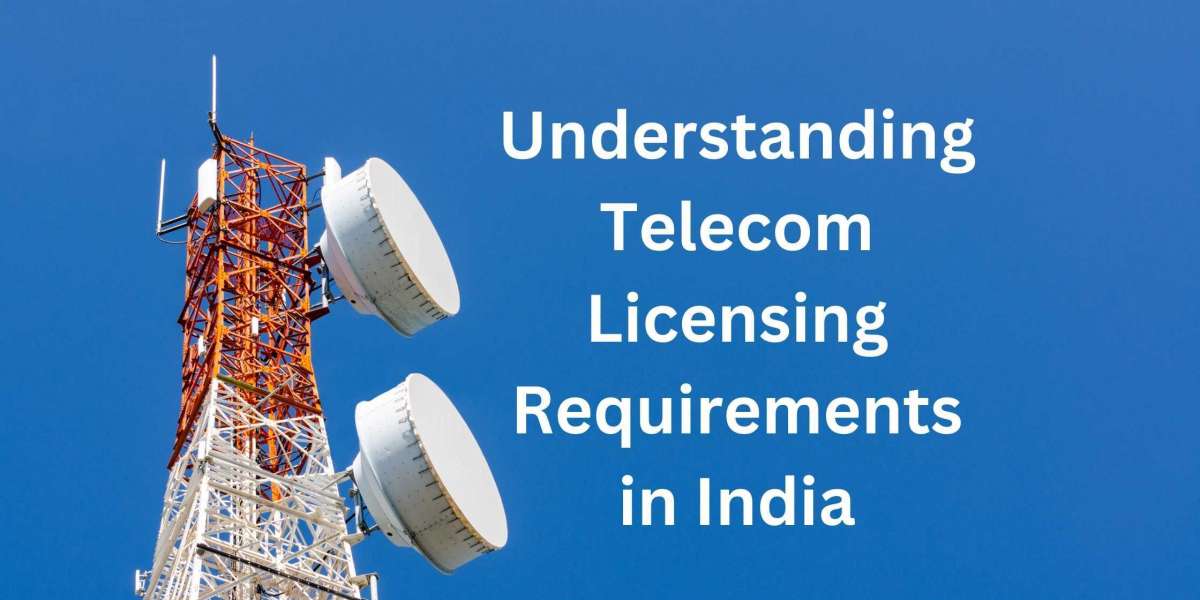Telecom licensing is essential for businesses that aim to provide telecommunications services in India. These licenses ensure that companies comply with regulations and maintain the standards set by the government. Whether you’re a startup or an established business entering the telecom industry, understanding the various licenses is critical.
This blog will provide an overview of the key telecom licenses required in India and related certifications, including FCC certification requirements, IPLC licenses, network licenses, UL VNO licenses, and WPC certification.
Importance of Telecom Licensing
Telecom licenses are essential for:
- Legal Compliance: Operating without proper licenses can result in penalties or legal action.
- Quality Assurance: Licensing ensures the use of approved equipment and services.
- Market Credibility: Licensed operators gain trust among customers and stakeholders.
- Spectrum Allocation: Licensing helps allocate frequencies for seamless operations.
Types of Telecom Licenses in India
Here is a breakdown of the primary telecom licenses:
1. Unified License (UL)
The Unified License is a consolidated license that allows businesses to offer multiple telecom services, such as voice and internet. It eliminates the need for separate licenses for different services.
2. UL VNO License (Virtual Network Operator)
The UL VNO License is designed for entities that want to offer telecom services but do not own infrastructure. These operators lease infrastructure from other telecom operators and provide services such as:
- Internet access
- Voice communication
- Data transmission
The UL VNO license ensures that even small players can enter the telecom market without huge investments in physical infrastructure.
3. IPLC License (International Private Leased Circuit)
The IPLC License is required for businesses that provide private network services for international data transfer. These circuits are typically used by companies that need secure and dedicated international connections for:
- Data transmission
- Video conferencing
- Other critical business operations
4. Network License
A Network License is necessary for establishing and managing telecommunication networks. It includes licenses for mobile networks, fixed-line services, and broadband networks. Companies aiming to deploy their own network infrastructure must secure this license.
Certifications for Telecom Equipment and Services
In addition to licenses, certifications are crucial to ensure compliance with technical and safety standards.
1. FCC Certification Requirements
FCC certification is mandatory for telecom equipment that will be used or imported into the U.S. Although not directly required in India, FCC certification demonstrates that your equipment meets international safety and performance standards. Many Indian telecom businesses seek FCC certification to export their products or build credibility in global markets.
2. WPC Certification
The WPC certification is essential for equipment that uses radio frequencies. This certification is issued by the WPC wing of the Department of Telecommunications (DoT) in India. It applies to devices like:
- Wireless routers
- Walkie-talkies
- IoT devices
WPC certification ensures that devices comply with India’s spectrum allocation and frequency usage guidelines.
Steps to Obtain Telecom Licenses and Certifications
Step 1: Determine the License or Certification You Need
Identify whether your business needs a UL, UL VNO, IPLC license, or other certifications like WPC or FCC. This depends on the type of services or equipment you aim to offer.
Step 2: Prepare Required Documents
Ensure that you have all necessary documents, including:
- Business registration certificate
- Detailed business plan
- Financial statements
- Technical specifications of equipment (for WPC/FCC certifications)
Step 3: Apply to the Appropriate Authority
- For telecom licenses like UL, UL VNO, and IPLC, apply through the Department of Telecommunications (DoT).
- For WPC certification, submit your application to the Wireless Planning and Coordination wing of the DoT.
- For FCC certification, work with an authorized testing laboratory or certification body.
Step 4: Compliance and Inspections
Ensure that your equipment and services comply with all technical, safety, and operational standards. The relevant authority may conduct inspections to verify compliance.
Step 5: License Issuance and Renewal
Once approved, you will receive your license or certification. Most licenses and certifications require periodic renewals, so stay updated with the renewal timelines.
Challenges in Securing Telecom Licenses
- Complex Documentation: Preparing and submitting the required documents can be time-consuming.
- Regulatory Changes: The telecom sector is highly regulated, and changes in policies can impact licensing requirements.
- High Costs: Some licenses, like the Unified License, involve substantial application and processing fees.
- Technical Compliance: Ensuring that equipment meets standards like FCC or WPC can be challenging without expert guidance.
Benefits of Proper Licensing and Certification
- Market Access: Proper licensing opens doors to new markets, both domestic and international.
- Legal Protection: Avoid fines and legal issues by complying with regulatory requirements.
- Enhanced Trust: Customers and partners are more likely to work with licensed and certified providers.
- Operational Efficiency: Licensed operators can access spectrum and other resources seamlessly.
Conclusion
Understanding telecom licensing requirements in India is vital for businesses in this dynamic sector. Whether you’re applying for a UL VNO license to start a virtual network, an IPLC license for international connectivity, or WPC certification for wireless devices, compliance is key. Additionally, certifications like FCC and WPC help maintain technical standards and build trust.
Navigating the licensing process can seem daunting, but with the right preparation and guidance, it becomes manageable. If you’re planning to enter the telecom industry or need help with licensing and certifications, consult a telecom expert or legal advisor to streamline the process and ensure compliance.
Source: https://cladsocial.com/blogs/146691/Understanding-Telecom-Licensing-Requirements-in-India







